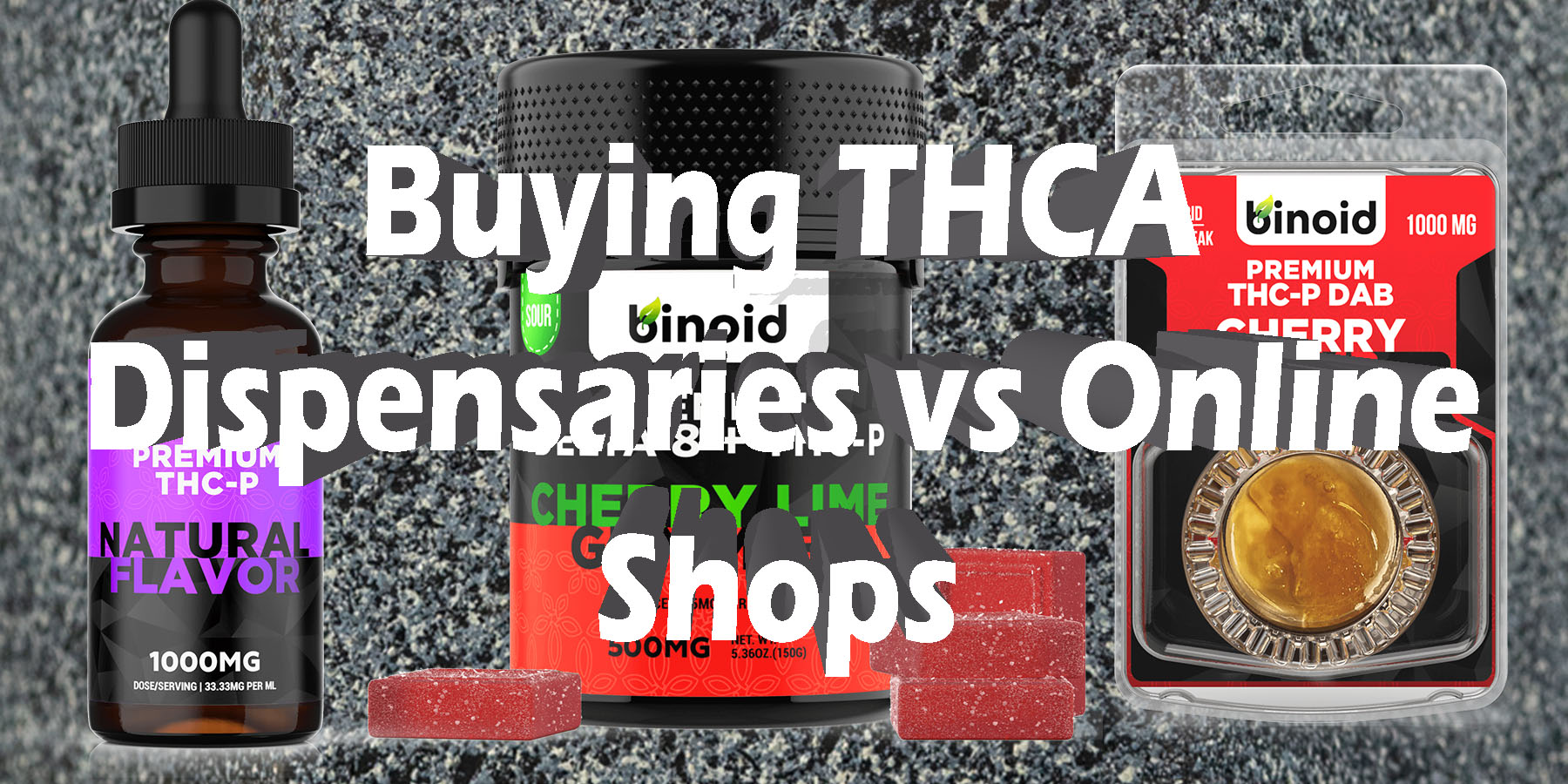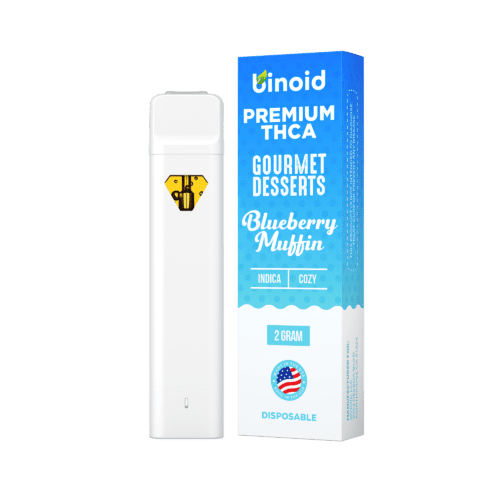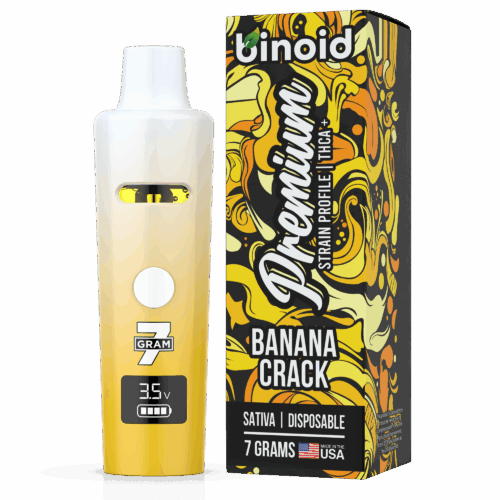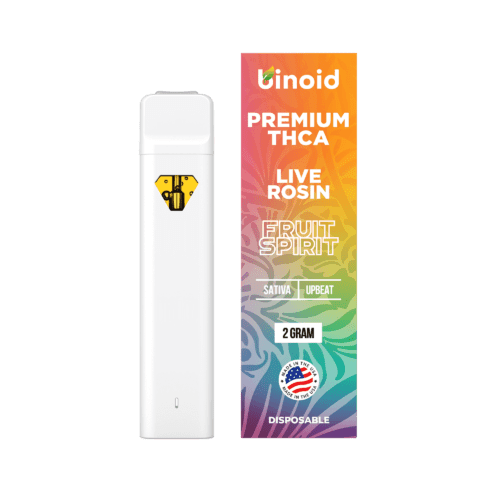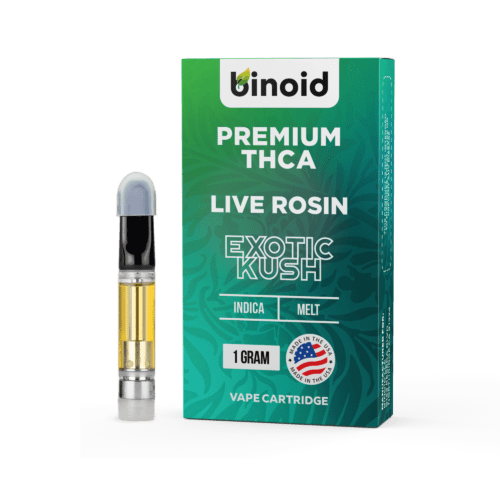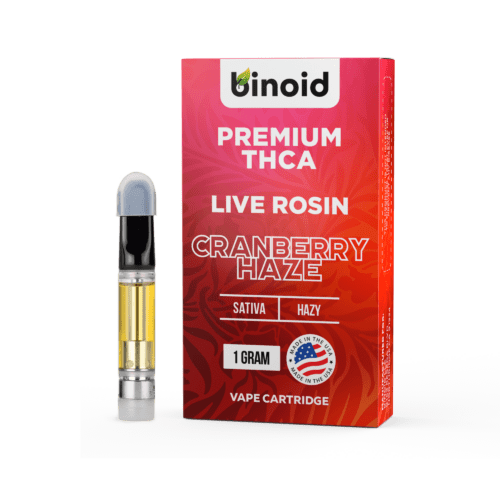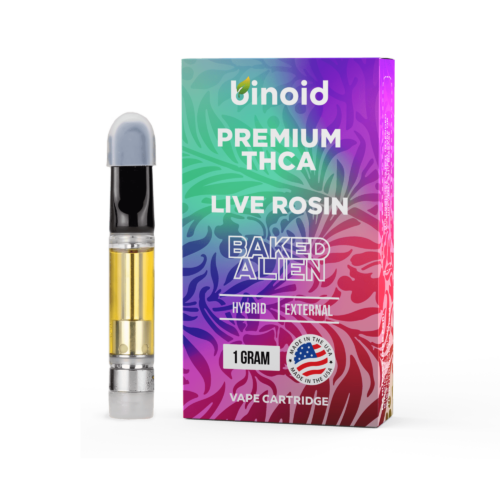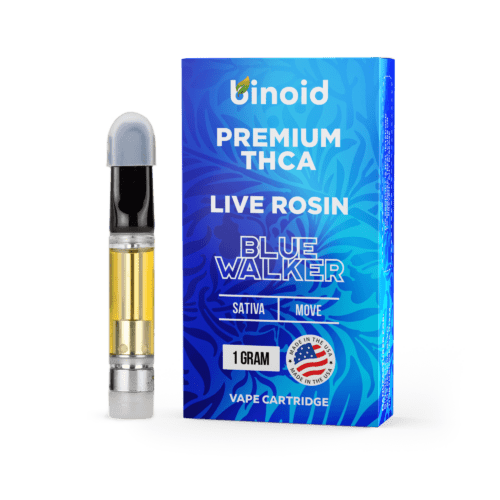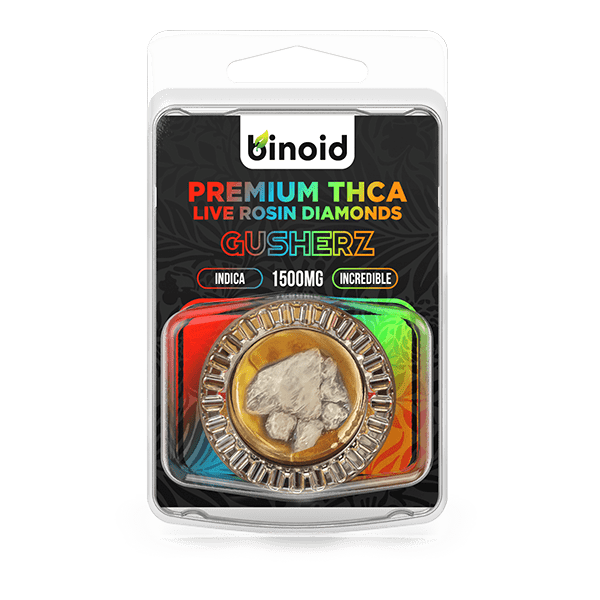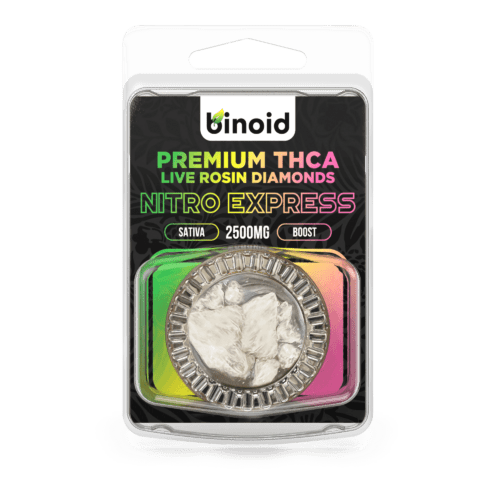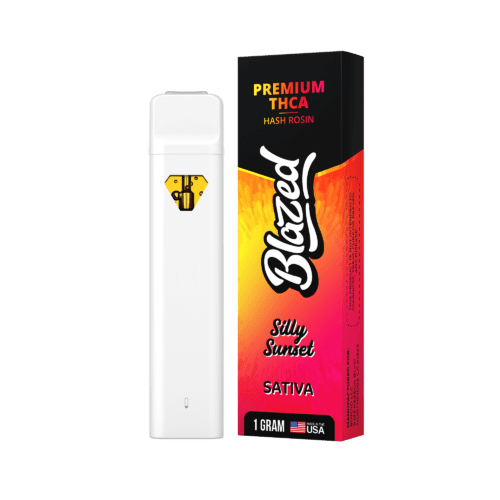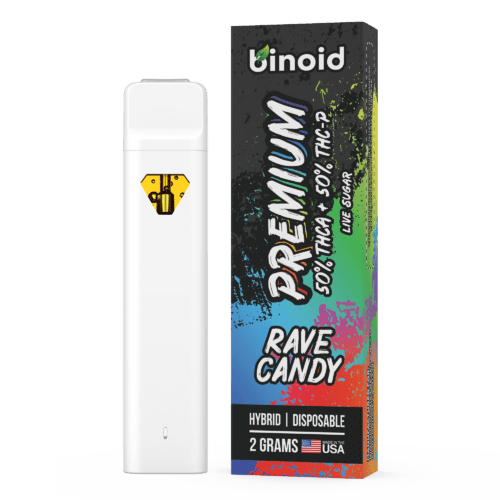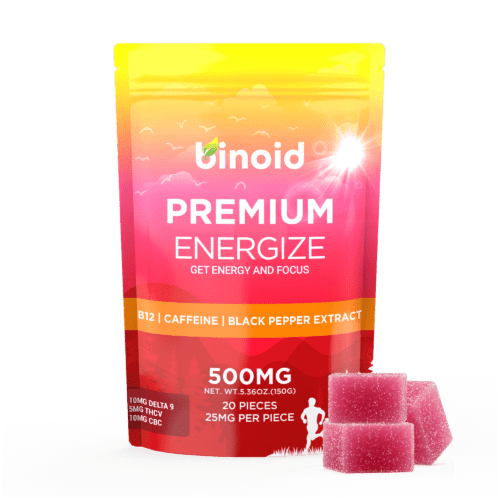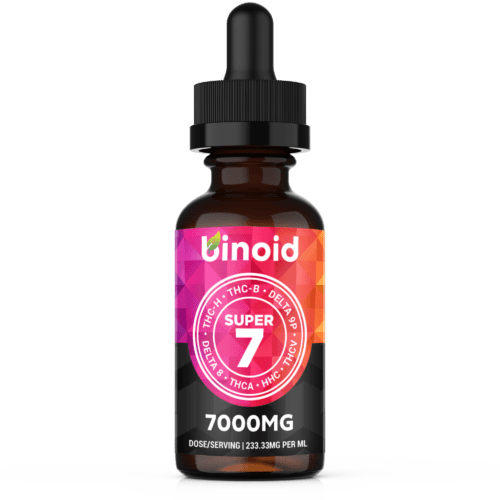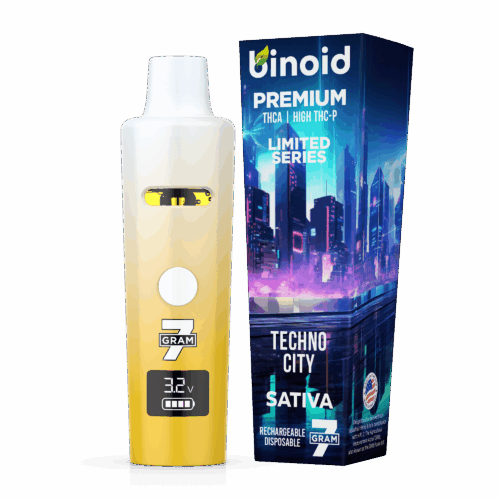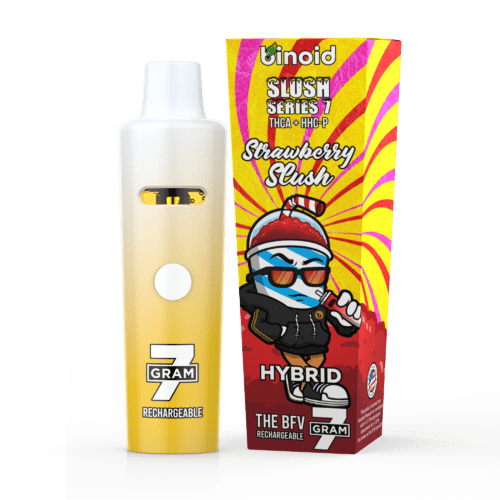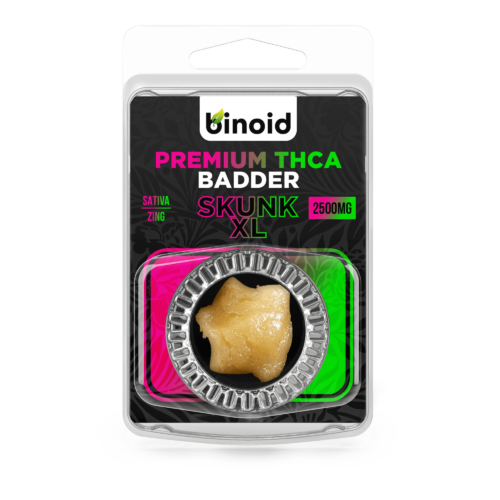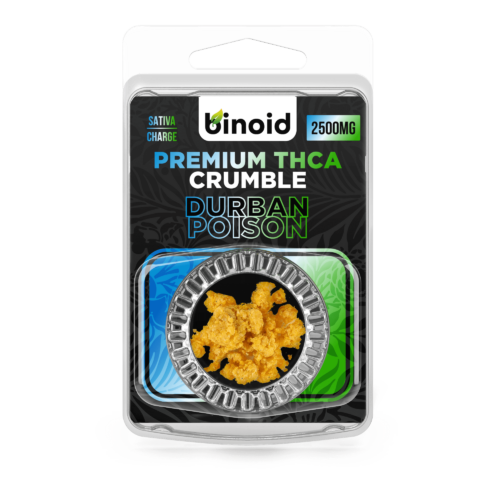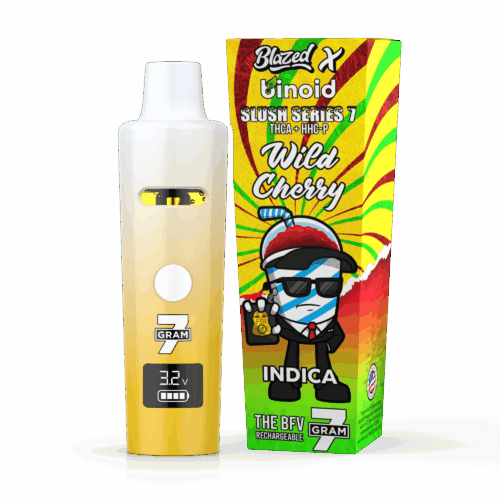The journey into the world of cannabinoids can be an exciting one, filled with new discoveries and evolving products. As interest in compounds like THCA continues to grow across the United States, consumers are presented with more choices than ever before, not only in terms of what to buy but also where to buy it. The landscape of cannabis and hemp-derived products is dynamic, shaped by regulations, consumer demand, and technological advancements. And so, navigating this landscape often leads to a fundamental question: when seeking out THCA, is it better to visit a traditional brick-and-mortar dispensary or to explore the burgeoning marketplace of online cannabis and hemp shops?
Both avenues offer distinct experiences and advantages, and understanding these differences is key to making an informed decision that aligns with your personal preferences and needs. Hence why, this exploration aims to illuminate the path, offering insights into each option without steering you with overt claims, but rather by presenting a clear picture of what each purchasing environment entails.
TO BUY THCA PRODUCTS CLICK HERE
Recommended products
Getting to Know Cannabis Dispensaries and Online Cannabis/Hemp Shops and Their Purposes
Before diving into the specifics of purchasing THCA, it’s helpful to have a foundational understanding of the two primary retail environments where these products are commonly found. Both dispensaries and online shops serve the purpose of providing consumer access to cannabis and hemp-derived products, but they operate under different models, cater to potentially different consumer expectations, and offer unique interactive experiences. Each has evolved within the complex regulatory framework governing cannabis and hemp in the USA, and their roles continue to be defined by both legal parameters and market forces.
Understanding Cannabis Dispensaries and Their Purpose
A cannabis dispensary is a physical, state-licensed retail location authorized to sell cannabis products, which may include marijuana-derived and, in some cases, hemp-derived items, depending on state and local regulations. The primary purpose of a dispensary is to provide a controlled and regulated environment for consumers to access these products legally and safely. Stepping into a dispensary, one typically encounters a secure facility, often with a waiting area and a separate sales floor. The design emphasizes security and compliance, with measures like ID verification at the entrance, surveillance systems, and secure product storage being standard. This controlled environment is a direct response to the regulatory scrutiny under which these establishments operate.
The interior of a dispensary is usually designed to be both welcoming and informative. Products are often displayed in locked cases, and customers typically interact with “budtenders” or sales associates who are expected to have knowledge about the various products offered. These staff members can guide consumers through different strains, potencies, and consumption methods, offering personalized recommendations based on the customer’s stated preferences or desired experiences, such as seeking a sense of bliss or enhanced focus. The atmosphere can range from a clinical, pharmacy-like setting to a more boutique, upscale retail experience, reflecting the brand identity of the dispensary and the target clientele it aims to attract. The emphasis is often on education and guided selection within a secure, face-to-face setting.
Beyond sales, dispensaries often see their purpose as being community hubs and centers for cannabis education. Many host informational events, provide literature on responsible consumption, and strive to destigmatize cannabis use by fostering an open and professional environment. They are also key players in ensuring product safety within the legal markets they serve, as they are typically required to source products from licensed producers and cultivators who adhere to state-mandated testing for potency and contaminants. This gatekeeper role is crucial in markets where regulatory oversight is paramount to consumer protection and the legitimacy of the industry as a whole.
Finally, the existence and operation of dispensaries are deeply intertwined with state-specific cannabis programs. For medical marijuana dispensaries, their purpose includes verifying patient eligibility through medical marijuana cards and ensuring that patients can obtain products that align with their documented needs. For adult-use or recreational dispensaries, the purpose is to provide legal access to cannabis for adults over 21, contributing tax revenue to the state and attempting to curtail the illicit market. Their physical presence makes them tangible points of access and regulation within the broader cannabis ecosystem, serving as the frontline of legal cannabis commerce in numerous states.
Understanding Online Cannabis/Hemp Shops and Their Purpose
An online cannabis or hemp shop is a digital storefront that allows consumers to browse, select, and purchase cannabis or hemp-derived products via the internet, with the items subsequently shipped directly to their location. The primary purpose of these online shops is to offer convenience, a wide selection, and often utilize competitive pricing structures by leveraging the efficiencies of e-commerce. These platforms can range from websites operated by multi-brand retailers, offering products from various producers; to direct-to-consumer sites run by companies that cultivate, manufacture, and sell their own branded product lines. This model expands accessibility, particularly for individuals who may not live near a physical dispensary or prefer the discretion and ease of shopping from home.
The structure of an online cannabis/hemp shop is built around its website or digital platform. This includes detailed product pages with descriptions, images, customer reviews, and often, access to third-party lab test results (Certificates of Analysis (CoAs)) that verify cannabinoid content and purity. Unlike the guided, in-person experience of a dispensary, online shops empower consumers to conduct their own research and make selections at their own pace. They often feature educational blogs, FAQs, and customer support through chat, email, or phone to assist with queries. The emphasis is on providing comprehensive information digitally, allowing consumers to become well-informed before making a purchase, potentially leading to experiences of clarity and euphoria with their chosen products.
A significant aspect of the purpose behind many online hemp shops, is their ability to operate across state lines, adhering to federal laws such as the 2018 Farm Bill. This bill federally legalized hemp and hemp-derived cannabinoids, as long as the final product contains no more than 0.3% Delta-9 THC by dry weight. This has enabled online retailers to reach a broader national audience in the USA, offering products that might not be available locally or in states with more restrictive cannabis laws. Their purpose, therefore, also includes navigating the complex legal landscape to provide federally compliant products to a wide consumer base.
Plus, online cannabis and hemp shops often aim to foster a sense of community and brand loyalty through digital engagement. This can involve loyalty programs, email newsletters with exclusive offers and product updates, and active social media presences. For brands that produce their own products, the online shop serves as a crucial direct interface with their customers, allowing them to build a brand narrative, gather feedback, and cultivate a dedicated following. They strive to offer a seamless and trustworthy purchasing experience, from user-friendly website navigation and secure payment processing to discreet packaging and reliable shipping, ensuring that the journey from click to delivery is smooth and satisfactory for the consumer.
Exploring the Fascinating Cannabinoid Known as THCA
Tetrahydrocannabinolic acid (THCA) has steadily emerged from the multitude of cannabinoids found in the cannabis plant, capturing the attention of enthusiasts and researchers alike. Unlike its well-known counterpart, Delta 9 THC (tetrahydrocannabinol), THCA is a non-psychoactive cannabinoid in its raw, unheated form. It serves as the acidic precursor to THC, meaning it converts into THC when exposed to heat through a process called decarboxylation. This unique characteristic, along with its distinct properties and growing availability, makes THCA a subject of considerable interest within the cannabis community. Understanding its journey from botanical compound to sought-after product offers valuable context for anyone looking to explore its potential.
The history of THCA is intrinsically linked to the broader history of cannabis research. While cannabis has been used for millennia, the scientific isolation and understanding of its individual chemical constituents began much more recently. Israeli chemist Raphael Mechoulam and his team first isolated and elucidated the structure of THC in 1964. Following this landmark discovery, research into other cannabinoids, including their acidic precursors, began to gain momentum. THCA, specifically THCA-A (the predominant form), was identified as the natural state in which THC exists within the cannabis plant. Early research focused primarily on THC due to its psychoactive effects, but as analytical techniques improved and interest in minor cannabinoids grew, THCA started to receive more dedicated scientific attention, particularly concerning its stability, its conversion process, and its own distinct biological interactions before decarboxylation.
From a scientific and chemical perspective, THCA is characterized by the presence of a carboxylic acid group (the “A” in THCA) attached to the THC molecule. Its chemical formula is C22H30O4. This carboxylic acid group is what makes THCA non-psychoactive in its raw state; it prevents the molecule from effectively binding to the CB1 receptors in the brain, which are primarily responsible for mediating the psychoactive effects of THC. The magic of transformation happens through decarboxylation, typically achieved by heating (smoking, vaping, baking) or, to a lesser extent, through slow degradation over time or exposure to light. During this process, the carboxyl group is removed as carbon dioxide (CO2), converting THCA into the psychoactive Delta-9 THC. This chemical transformation is fundamental to how most THCA products are utilized to achieve THC’s familiar effects.
When THCA is consumed raw, such as by juicing fresh cannabis leaves or ingesting unheated THCA isolates, it does not produce the euphoric sensations typically associated with THC. However, studies suggest that raw THCA may interact with the human endocannabinoid system (ECS) and other cellular pathways in unique ways, potentially offering different avenues for achieving a sense of well-being or focus, distinct from decarboxylated THC. When THCA is heated and converts to THC, the effects are then those associated with THC, which can range from feelings of bliss and altered sensory perception to enhanced creativity for some individuals. The intensity and nature of these effects depend on dosage, individual physiology, the strain’s terpene profile, and the method of consumption.
Recommended products
The versatility of THCA has led to its incorporation into a diverse array of product types and delivery methods, catering to varied consumer preferences:
Flower: This would be the raw, cannabinoid-rich buds of the cannabis plant, that remains a foundational product, cherished for delivering a classic, full-spectrum experience through traditional consumption methods. This category is diverse, featuring loose buds cultivated in various environments, such as indoor or outdoor, with quality often denoted by grading systems (like AAAA Exotic, AAA Exotic, AA Exotic, or Exotic classifications) and options like “Flower Smalls” which offer smaller buds. For convenience, THCA flower is also commonly available in ready-to-use pre-rolls (joints). Beyond these standard forms, consumers can explore enhanced flower products like potent THCA Moonrocks (flower coated or infused with cannabis concentrate and then rolled in kief) and Snow Caps, also known as Snowballs (flower generously dusted or covered with THCA isolate). Regardless of whether it’s a premium loose bud, a practical pre-roll, or an enhanced creation, the THCA within the flower is converted to THC via decarboxylation when heated through smoking or vaporization, leading to rapidly felt effects. Some THCA flower loose buds categories can also be used to make edibles after decarboxylation. Essentially, the experience is classic and offers the full spectrum of the plant’s compounds.
Vapes: These popular products utilize a potent THCA concentrate, specifically intended to be vaporized by the heating element within the device. This critical heating action instigates decarboxylation, efficiently converting the THCA into THC immediately prior to inhalation. Vaping THCA this way offers a convenient, discreet, and notably fast-acting delivery method, thus allowing users to experience potential effects like euphoria or enhanced clarity within just a few minutes. The two common forms are pre-filled cartridges that’re designed to be attached to compatible vape pen systems, and those sleekly all-in-one disposable vape pens, both frequently offered in a wide variety of strain-specific terpene profiles.
Concentrates: Are exceptionally potent extractions, celebrated for their high purity and concentration of Tetrahydrocannabinolic Acid. They manifest in various desirable textures, such as glossy shatter, malleable wax, crumbly textures, or even highly refined crystalline forms like THCA diamonds. These products are specifically designed for vaporization at high temperatures, typically using a dab rig or a specialized concentrate vape pen; this intense heat instantaneously decarboxylates the THCA into psychoactive THC upon inhalation. Given their remarkable potency, THCA concentrates can deliver powerful and immediate effects, which may include profound euphoria or a heightened sensory experience, making them a preferred choice primarily for experienced users or those seeking very strong effects from a minimal amount of product.
Gummies: These are edible products where Tetrahydrocannabinolic Acid is the primary advertised cannabinoid, infused into a gummy formulation. For these products to be compliant, particularly when sold online under U.S. hemp regulations, the THCA is typically not decarboxylated into Delta-9 THC during the manufacturing process; doing so could result in a product exceeding the 0.3% Delta-9 THC limit. Therefore, when consumed as intended (eaten directly), these gummies will deliver THCA in its acidic, largely non-psychoactive form, rather than inducing the euphoric effects associated with THC. Any minor decarboxylation that might occur during production is generally not sufficient to alter this primary characteristic, with the focus remaining on delivering raw THCA.
Tinctures: Tinctures: THCA tinctures are liquid cannabinoid preparations specifically formulated to deliver Tetrahydrocannabinolic Acid in its raw, acidic state. These products typically use a carrier oil or alcohol to suspend the THCA, designed for sublingual (under the tongue) absorption, which can allow for relatively rapid onset into the system. Crucially, a genuine THCA tincture will not have undergone intentional decarboxylation, meaning the THCA has not been converted into psychoactive Delta-9 THC; thus, it retains the non-psychoactive properties of raw THCA. Consumers utilize these tinctures for the specific characteristics of THCA itself, and they offer the advantage of precise, controlled dosing using a dropper.
Capsules/Tablets: These are designed for oral ingestion, containing Tetrahydrocannabinolic Acid in its raw, acidic powder form. These products deliver THCA that has not been decarboxylated into psychoactive Delta-9 THC, ensuring that their effects align with those of non-psychoactive THCA. Consumers choose THCA capsules or tablets for a convenient, precisely measured, and discreet way to orally ingest THCA in its original state. Similar to other oral consumption methods, the onset of effects is typically slower than inhalation, but the experience may last for a longer extended period.
Topicals: THCA can be infused into creams, balms, and lotions for localized application to the skin. In this form, THCA is generally not psychoactive as it does not typically enter the bloodstream in significant amounts. Topicals are often chosen for targeted application to specific areas of the body. While not as common for delivering THCA’s psychoactive potential, they represent another facet of its use.
Why Can THCA Be Found at Either a Dispensary or an Online Shop
The availability of THCA products in both state-licensed cannabis dispensaries and online hemp shops operating across the United States stems from a crucial piece of federal legislation: the 2018 Agriculture Improvement Act, more commonly known as the Farm Bill. This landmark law fundamentally changed the legal status of hemp and hemp-derived compounds at the federal level. It defined hemp as cannabis (Cannabis sativa L.) containing not more than 0.3% Delta-9 THC on a dry weight basis. Crucially, the Farm Bill removed hemp from the definition of marijuana under the Controlled Substances Act, thereby legalizing hemp cultivation and the production and sale of hemp-derived products, including cannabinoids like CBD, CBG, and, importantly, THCA, as long as they meet that 0.3% Delta-9 THC threshold.
This federal distinction is paramount. Because THCA itself is not Delta 9 THC, raw cannabis flower or extracts high in THCA can technically qualify as “hemp” if the Delta 9 THC concentration remains at or below the 0.3% limit. Online shops often leverage this federal legality, sourcing and selling THCA products that are derived from hemp and comply with this specific THC concentration. This allows them to ship these products to many states, even those without legal adult-use marijuana programs, as they are operating under the umbrella of federal hemp law. The caveat is that state laws can vary, and some states have implemented their own restrictions on hemp-derived cannabinoids, including THCA, creating a complex and sometimes contradictory regulatory patchwork that online retailers and consumers must navigate.
Dispensaries, on the other hand, primarily operate under state-specific cannabis laws. In states with medical or adult-use marijuana programs, dispensaries are licensed to sell cannabis products that often exceed the 0.3% Delta-9 THC limit (once THCA is decarboxylated). These products are typically sourced from in-state licensed cultivators and processors. However, dispensaries in some regions may also stock hemp-derived products, including those high in THCA that meet the federal definition of hemp, to broaden their offerings or cater to specific consumer interests.
The key difference lies in their regulatory framework: dispensaries are state-governed entities primarily dealing with state-legal cannabis (which may have high THC potential after decarboxylation), while online hemp shops operate based on the federal legality of hemp and its derivatives, focusing on products that maintain very low levels of actual Delta-9 THC in their raw or final formulated state. The dual availability reflects these overlapping but distinct legal pathways for cannabis and hemp products in the USA.
Breaking Down the THCA Buying Matchup: Dispensaries vs. Online Shops
Choosing where to purchase your THCA products involves considering a variety of factors, from product selection and price to convenience and the type of shopping experience you prefer. You see, both dispensaries and online shops present a compelling case, yet they cater to different priorities and offer distinct advantages and disadvantages. Understanding this matchup requires a closer look at what each contender brings to the table, allowing consumers to make an educated choice that best suits their individual circumstances and purchasing preferences in the evolving landscape of cannabinoid accessibility.
Contender #1: Dispensaries
Dispensaries represent the traditional, regulated physical storefronts for cannabis products in states where medical or adult-use marijuana programs have been established. These establishments are born out of state-level legislative efforts to control and legitimize the sale of cannabis, moving it from the illicit market into a taxed and monitored system.
When walking into a dispensary, you’re entering a space specifically designed for the retail of cannabis, complete with security measures, product displays, and knowledgeable staff. The experience is tangible; you can often see and sometimes even smell the products (though smelling is not always permitted due to regulations), and you have the opportunity for immediate, face-to-face interaction with individuals who can discuss the nuances of different strains and product types, potentially guiding you toward options that might elicit feelings of clarity or euphoria.
The environment within a dispensary is heavily shaped by state regulations, which dictate everything from licensing and inventory tracking to marketing and sales procedures. This regulatory oversight is a cornerstone of the dispensary model, intended to ensure product safety, prevent underage access, and maintain compliance with local laws. For many consumers, particularly those new to cannabis or those with specific wellness goals, the ability to converse with a budtender, ask detailed questions about product origins, cannabinoid profiles, and suggested use can be invaluable.
This personalized service, combined with the immediacy of being able to leave with your purchase in hand, forms a significant part of the appeal of buying THCA products from a dispensary, especially for individuals who value a direct, guided purchasing journey and the assurance that comes from a state-regulated source.
Recommended products
Pros & Cons
Evaluating dispensaries involves considering both their strong points and their limitations. The very nature of their physical, regulated existence shapes these aspects, offering a unique set of benefits alongside some inherent drawbacks when compared to the digital marketplace.
Pros:
Immediate Product Access: Purchase and possess your THCA products on the same day, without any waiting period for shipping. This is ideal for those who prefer instant gratification or have an immediate need.
In-Person Expert Advice: Budtenders can offer personalized recommendations and answer specific questions about THCA strains, effects (like potential for focus or bliss), and consumption methods based on their product knowledge and training.
Product Inspection (Sometimes): Depending on state regulations and dispensary policy, you might be able to visually inspect the THCA flower or packaging up close before buying, helping assess quality aspects like trichome density or trim.
Support Local Businesses: Purchasing from a local dispensary often means supporting businesses within your community and contributing to local tax revenue, which can fund public services.
Regulated and Tested Products (State-Specific): Products sold in licensed dispensaries typically must adhere to state-mandated testing for potency (including THCA and Delta-9 THC levels) and contaminants, offering a certain level of quality assurance.
Educational Opportunities: Many dispensaries invest in educating consumers about responsible use, cannabinoid science, and the nuances of different products, fostering a more informed consumer base.
Tangible Shopping Experience: For those who enjoy the sensory aspects of shopping and direct human interaction, the physical environment of a dispensary provides a more traditional and engaging retail experience.
Cons:
Limited Geographic Accessibility: Dispensaries are only available in states with legal cannabis programs, and even then, their locations might be inconvenient or sparse, especially in rural areas.
Higher Operational Costs Leading to Potentially Higher Prices: Rent, staffing, security, and regulatory compliance contribute to higher overhead for dispensaries, which can translate into higher retail prices for THCA products compared to online alternatives.
Restricted Hours of Operation: Unlike online shops, physical dispensaries have set operating hours, meaning you can only make purchases during specific times of the day.
Potentially Less Product Variety/Selection: While selection can be good, a single dispensary’s inventory may be limited by its physical space, its specific licensing (medical vs. recreational), and its agreements with local suppliers, potentially offering less breadth than large online retailers.
Contender #2: Online Shops
Online cannabis and hemp shops have surged in popularity, offering a digital gateway to a vast array of THCA products accessible from virtually anywhere with an internet connection. These e-commerce platforms operate under the legal framework established by the 2018 Farm Bill for hemp-derived products, allowing them to ship THCA items that meet the federal requirement of containing less than 0.3% Delta-9 THC by dry weight across many state lines.
This model prioritizes convenience, discretion, and often, a wider selection than typically found in a single physical store. Consumers can browse extensive catalogs, compare products and prices from different brands, and delve into detailed product information, including lab reports, all from the comfort and privacy of their own homes.
The experience of shopping for THCA online is self-directed, empowering users to research at their leisure and make informed decisions without the potential pressure or time constraints of an in-person retail interaction. Many online shops enhance this experience with rich content, such as blogs, educational articles about cannabinoids like THCA and their potential to contribute to a sense of well-being or euphoria, and customer reviews that provide peer insights.
While lacking the immediate, face-to-face guidance of a budtender, reputable online retailers often provide customer support via chat, email, or phone. Furthermore, the competitive nature of the online marketplace can lead to more aggressive pricing, discounts, and loyalty programs, making it an attractive option for budget-conscious consumers or those seeking specific or niche THCA products that may not be readily available locally.
Recommended products
Pros & Cons
The digital realm of online THCA shopping offers a compelling alternative to brick-and-mortar dispensaries, characterized by its ease of access and breadth of choice. However, this model also comes with its own set of considerations that consumers should weigh.
Pros:
Unparalleled Convenience: Shop for THCA products 24/7 from anywhere, without the need to travel, offering ultimate flexibility and time-saving.
Wider Product Selection: Online shops often have access to a much larger inventory from numerous brands and producers nationwide, providing a greater variety of THCA strains, product types, and potencies.
Competitive Pricing and Deals: Lower overhead costs compared to physical stores can translate to more competitive prices, and online retailers frequently offer discounts, promotions, and bundle deals.
Discreet Shopping and Delivery: Products are typically shipped in plain packaging directly to your door, offering a high level of privacy for those who prefer not to shop in person.
Access to Extensive Information: Reputable online stores provide detailed product descriptions, ingredient lists, customer reviews, and easily accessible third-party lab reports (Certificates of Analysis) for THCA products, promoting transparency.
Accessibility for Remote or Underserved Areas: Online shops can serve customers in areas where no physical dispensaries exist, or where state laws for marijuana dispensaries are restrictive, provided state hemp laws allow for THCA.
Reduced Social Pressure: Consumers can take their time to research and make decisions without feeling rushed or influenced by sales staff, allowing for a more considered purchase based on personal research and preference.
Direct-from-Brand Options: Many online shops are run by the brands themselves, allowing consumers to buy directly from the source, which can sometimes mean fresher products or access to exclusive items.
Cons:
No Immediate Product Access (Shipping Times): You must wait for your THCA products to be shipped and delivered, which can take several days, and occasionally longer if there are delays.
Inability to Physically Inspect Products: You cannot see, smell, or touch the THCA products before purchasing, relying solely on images, descriptions, and reviews.
Potential for Misleading or Unreliable Sellers: The online space can sometimes harbor less reputable vendors; thus, it’s crucial to vet online shops carefully, looking for transparency, lab repots, and good reviews.
Navigating Complex Shipping Restrictions: While federally legal under the Farm Bill, some states have their own specific restrictions on hemp-derived cannabinoids like THCA, and online shops may not ship to all locations, requiring due diligence from the consumer.
Which Option is the Best for Your THCA Needs?
Ultimately, the path you choose for acquiring THCA products—be it the curated, in-person experience of a dispensary or the expansive, convenient world of online shops—hinges on a tapestry of individual priorities, local accessibility, and personal comfort levels. There isn’t a universally “superior” option, as each channel offers unique strengths that resonate differently with each consumer. However, as the digital landscape continues to mature, offering increasingly sophisticated platforms, robust product verification, and a vast spectrum of choices, the argument for the convenience and comprehensive nature of online shopping becomes progressively compelling.
For the discerning individual who values deep research, broad selection, competitive pricing, and the discreet comfort of making choices from their own space, the ever-evolving online marketplace, like here at Binoid, presents a particularly forward-looking and empowering avenue for exploring the nuanced world of THCA and finding products that align perfectly with their pursuit of experiences like enhanced clarity or a profound sense of bliss.

